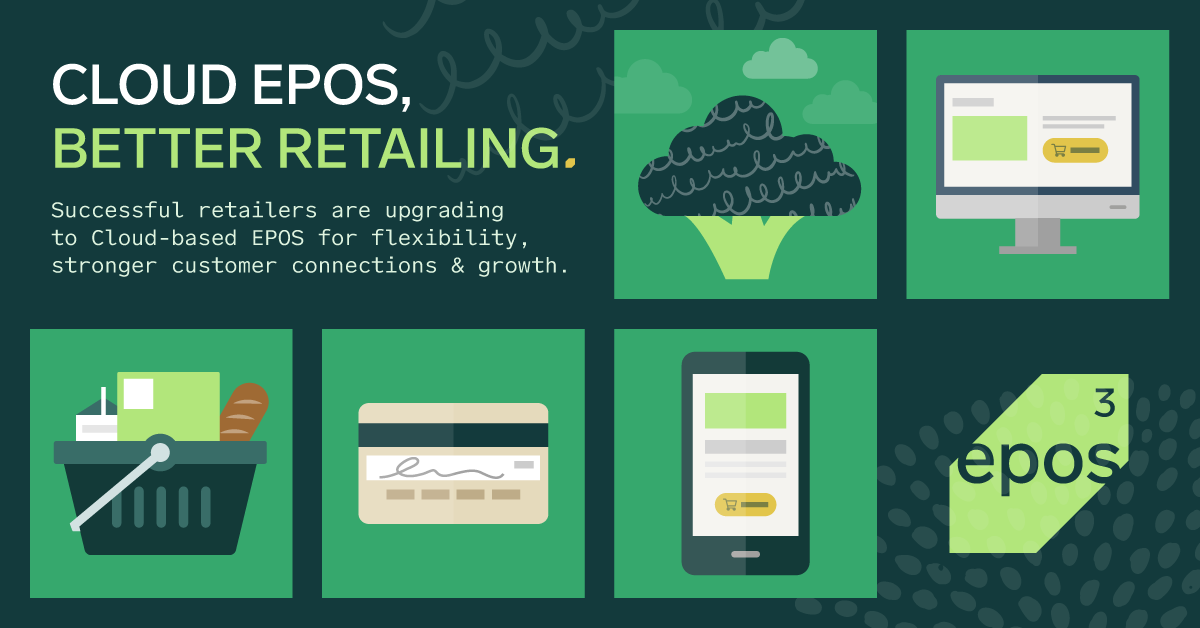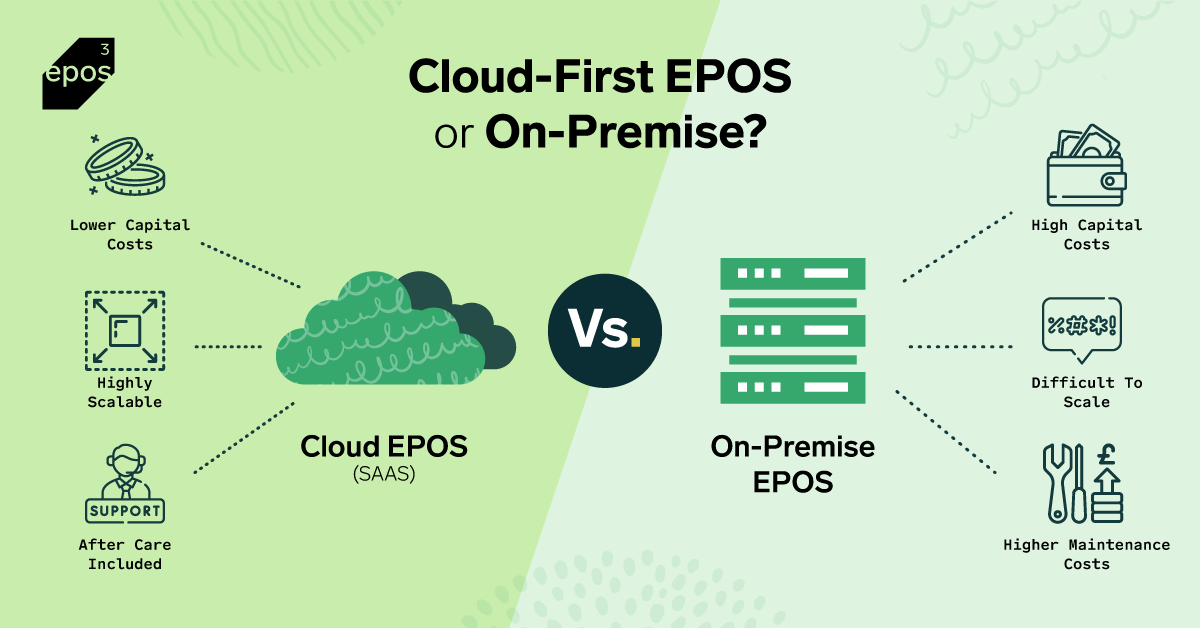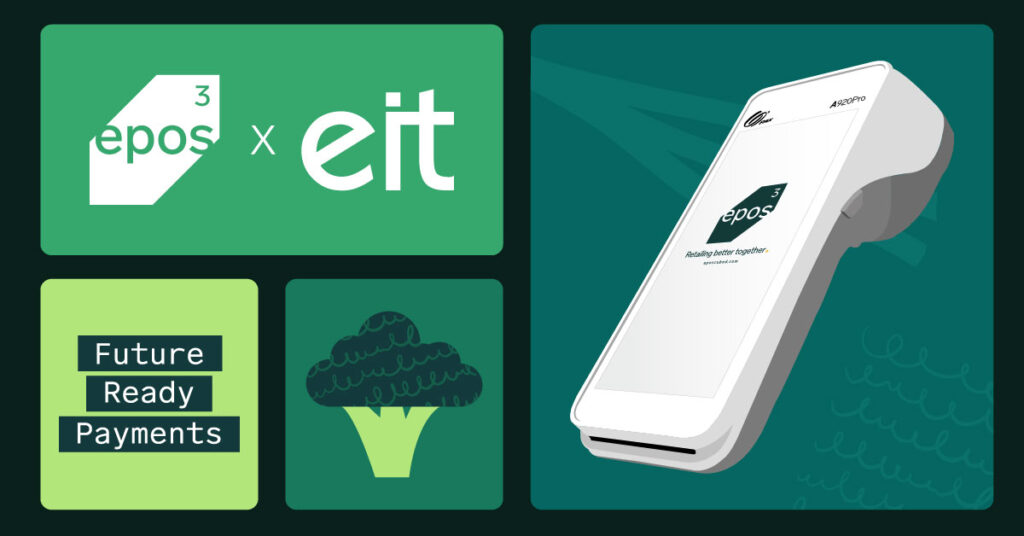Staying ahead in today’s fast-paced retail environment means embracing the latest technology, with Cloud-based EPOS leading the way.
Whether you run a Farm Shop, Garden Centre, Department Store, or other retail business, your customers expect seamless experiences and efficient service.
Outdated EPOS systems hold businesses back, limiting growth and frustrating staff and customers.
To secure long-term success, many retailers choose to future-proof their business with a flexible, Cloud-based EPOS solution.
The Drawbacks of Traditional On-Premise EPOS Systems
If your business relies on an on-premise EPOS system, you have likely faced challenges such as expensive upgrades, limited scalability, and hardware that quickly becomes outdated.
These systems restrict your ability to access data remotely, a significant drawback in today’s multi-channel retail landscape, where quick, data-driven decisions are essential.
With on-premise EPOS, adding new features or expanding locations requires significant investment in hardware and software. Additionally, manual maintenance and updates often lead to downtime, affecting the customer experience and slowing operations.
Why Choose a Cloud-Based EPOS Solution?
Switching to a Cloud-EPOS platform can revolutionise how you run your retail store, regardless of your industry.
At EPOS Cubed, we ensure our solutions are built to scale alongside your business. This allows you to easily add new users, expand to different locations, or adjust for seasonal peaks without significant additional cost.
Imagine this scenario: It’s mid-December. You’re in the middle of Christmas trading, and your store manager decides you need a few extra tills (just for a couple of weeks) to get through a busy festive season and ensure customers have the best shopping experience possible.
Adopting our ‘Cloud-First‘ EPOS Software makes this scaling up and down a practical reality. Add functionality (scale up) and remove again (scale down) as your business needs with little or no hassle.
Seamless Integration and Real-Time Access with Cloud-Based EPOS
We also ensure timely updates that keep your system secure and up-to-date with the latest features and security patches.
Additionally, we enable you to integrate seamlessly with other services, such as various payment platforms, e-commerce platforms, accounting software, and customer relationship management (CRM) systems. These integrations simplify operations, save time, and reduce errors.
Cloud-based systems also give you real-time access to sales data, inventory management, and other key functions from any internet-connected device, enabling you to make informed decisions on the go.
Sectors that Benefit from a Cloud-First Approach
A wide range of retail businesses can gain significant advantages from adopting a Cloud-first EPOS solution.
In our experience, here are some sectors that particularly benefit:
- Farm Shops
- Garden Centres
- Cheesemongers
- Butchers
- Pet Stores
- Coffee Shops
- Department Stores
- Furniture Retail
- Food Halls
These businesses share common challenges, such as the need for flexible management, efficient stock control, and the ability to scale up or down as needed.
A Cloud-first EPOS system addresses these needs while providing a modern, agile approach to retail operations.
Cloud-Based EPOS vs. On-Premise: The Pros and Cons
To help you understand the benefits and drawbacks of each system type, here’s a comparison table that outlines just some of the key factors:
CLOUD-BASED PROS
LOWER INITIAL COSTS:
Retailers usually purchase cloud-based EPOS on a subscription basis, often benefiting from significant price savings compared to on-premise alternatives. Cloud EPOS providers also tend to include support, data backup and system upgrades in their pricing.
REMOTE ACCESS:
Having access to your EPOS system from a remote location 24/7 is a major advantage for many retailers. Users can stay informed about store activities from anywhere, and supervisors can remotely perform tasks, including authorising actions. (E.g. Refunds)
SCALABILITY:
Easily expand or reduce your features, users and locations as your business requires. Seasonal businesses get the added advantage of being able to scale up for short periods.
DATA SECURITY & UPGRADES:
Stay current with the latest software versions and security enhancements. The system backs up key retail data, keeping it safe in the event of fire, flooding, or on-site theft.
ALL-IN-ONE SOLUTION:
Most Cloud-based EPOS systems are able to utilise integrations with other ‘best-in-class‘ Cloud software providers across various areas of retail management. This provides a single solution that has the benefits of seamless links with Business Accounts, CRM, Rota Management, Online Shopping, Marketing, Customer Loyalty and lots more.
INVENTORY MANAGEMENT & INFORMATION ACCURACY:
Having access to data that is accurate is vital for every retailer. For many, ensuring figures are LIVE is also key to operating profitably. Knowing you are viewing live and accurate information significantly improves operational decision making and fosters stronger customer connections. (E.g. Ensuring Loyalty Points are always accurate reduces the potential for brand-damaging conversations with customers over social media!)
DISASTER RECOVERY:
Because the Cloud manages your key business data, disaster recovery is usually much more straightforward than with an on-premise solution. You can set up duplicate systems in minutes with access to the most recent data.
CLOUD-BASED CONS
CONNECTIVITY CONCERNS:
Some Cloud-providers require ‘always-on‘ Internet connectivity to operate. Many providers offer a ‘disconnected‘ mode that allows continued operation, but not all options include this feature, so retailers should check. In some cases, a retailer may not have a reliable broadband connection due to being in a particularly remote location. In circumstances where broadband availability is this poor, Cloud-based EPOS may prove impractical.
LIMITED CONTROL OVER INFRASTRUCTURE:
Retailers with highly specific hardware or networking requirements can experience less control over infrastructure choice if equipment has to conform to specifications from a specific manufacturer.
TIME-ZONE-BASED SUPPORT:
Retailers in a different time-zone from the EPOS provider can have their support services hampered due to a mis-match in hours of operation between the retailer and vendor. In such cases, businesses often limit support to email, which can slow the process of resolving issues when they arise.
IMAGE: Exploring some key differences between Cloud-based and On-Premise EPOS systems to determine the best solution for your retail business.
ON-PREMISE PROS
CONTROL OVER INFRASTRUCTURE:
For some retailers, being able to be prescriptive about the nature of the hardware and networking is important. I.T. Departments can choose when to upgrade servers, routers, and other equipment, and decide on the type of replacement equipment.
EASIER INTEGRATION WITH LEGACY SYSTEMS:
Some retailers still use older software packages that they need to integrate with. Accounts software, Timeclocks, Temperature Monitoring and some Weighing Technology are all examples where it may prove easier for vendors to integrate with legacy systems due to their lack of a more modern API-style interface.
CAN BE CHEAPER OVER A LONG PERIOD:
Although usually significantly more expensive at the beginning to have an on-premise solution, in some cases, the overall cost of ownership can prove to be cheaper when compared with a Cloud-based EPOS alternative. To make a fair comparison, we must also account for any operational and brand-related costs incurred from not being able to do something as effectively or as promptly as with a Cloud solution.
PERFORMANCE PREDICTABILITY:
It can be the case that on-premise EPOS vendors have more control over performance and speed than some of the Cloud-based EPOS alternatives. That said, most broadband providers now offer a ‘speed guarantee‘, particularly for business packages which goes a long way to mitigate this issue in a Cloud context.
ON-PREMISE CONS
BIGGER UPFRONT COST:
Many on-premise solutions may require significant investment. Expensive servers, switches, networking and backup facilities can all add to a high cost of ownership. Software licencing can also be more expensive, requiring users to buy modules up front.
I.T. KNOWLEDGE & MAINTENANCE REQUIRED:
After making the initial investment in hardware, you must then ‘own‘ it, ensuring that all parts are properly maintained. This usually requires either some in-house I.T. knowledge or engaging the services of a third-party at an additional cost. You will also need to be aware of and know how to apply latest security patches whenever required to ensure your system and customer data remains safe and secure.
LIMITED OR ZERO SCALABILITY:
On-premise EPOS systems are notoriously difficult to scale, if at all. Adding new tills, users or features, etc. tends to involve a protracted process of quotation, organising engineer visits and can prove costly and laborious. The time-consuming nature of such processes to help facilitate short, busy retail periods can often leave management and shop staff frustrated and is often impractical in a fast-moving retail world.
PHYSICAL SPACE:
Dedicated servers, network cabinets, switches, hubs, etc. all require space to locate. In some cases, you must control the room’s temperature to keep key equipment within operational limits and prevent overheating.
DISASTER RECOVERY:
Where sites have experienced a fire, flood, theft or other disaster-type event in an on-premise context, it can be a laborious and costly process to get the business back online and trading properly. Often, you must manage data backups separately, and if a new server is needed, someone has to reinstall all the software, secure it, set it up physically, and connect it to the network. It’s significantly easier to implement the necessary redundancy in a Cloud environment and to prevent physical disasters since key equipment isn’t on-site.
INVENTORY MANAGEMENT & INFORMATION ACCURACY:
In multi-branch scenarios for on-premise installations, locations are often connected together using various ‘Data-Replication‘ technologies. This relies on a reliable Internet connection. When connected, key information is shared between locations. This includes everything from Stock Levels and Price Changes to Customer Loyalty Points and Account Payments. This ‘Data Conversation‘ usually happens on a schedule (E.g. Every hour). In the intervening period, all systems are out of sync and it may not be possible to have accurate information about how many loyalty points a customer has, which invoices have actually been paid, what stock levels really are. This has the potential to create operational headaches and can make for a poor Customer experience.
LONG IMPLEMENTATION TIME:
Many retailers can experience longer project implementation timescales with On-Premise EPOS installations. Some of this can be attributed to a need for physical access to the site, server and network equipment. (i.e. Project implementation teams cannot physically access servers, etc., unless the business is open). Staff training can also be hampered for the same ‘access’ reasons. Equally, having trial periods on software modules or access to functionality tends to be limited in on-premise environments. All things that increase the overall cost of implementation.
Key Features to Look For in a Cloud-Based EPOS Solution
When evaluating your EPOS provider, consider whether their system offers features that will support your business as it grows.
For example, a Cloud-based EPOS solution can automate stock replenishment, provide instant insights into sales performance, and adjust pricing based on real-time data. These features go beyond convenience; coupled with other benefits, they are vital for staying competitive and profitable in a rapidly evolving market.
EPOS Cubed‘s offering combines advanced inventory management, real-time sales tracking, multi-location support, and customer loyalty programmes. These capabilities help your business run more efficiently, maximise profitability, and maintain stronger connections with valued customers.
The Cost Benefits of Upgrading
Many businesses hesitate to change EPOS providers because of perceived costs.
That said keeping an outdated system is often significantly more expensive in the long term. Traditional or legacy systems frequently involve ongoing maintenance fees, potential downtime, missed sales, or reputational damage due to operational inefficiencies or out-of-date information.
EPOS Cubed offers a cost-effective alternative that adjusts resources according to your business needs, reducing unnecessary spending and freeing up funds for growth.
Step into the Future with EPOS Cubed
💡 Take a moment to evaluate your current EPOS system…
Is it helping your retail business reach its full potential or holding you back?
Do you and your team experience any of the frustrations with your EPOS solution that many other retailers experience?
EPOS Cubed is committed to helping businesses like yours succeed with innovative, Cloud-based EPOS software.
If you’re ready to future-proof your retail business—whether you own a Farm Shop, Garden Centre, Department store, or trade in another sector—now is the perfect time to explore how we can support your growth.
We would love to hear from you and talk about how we can help.



